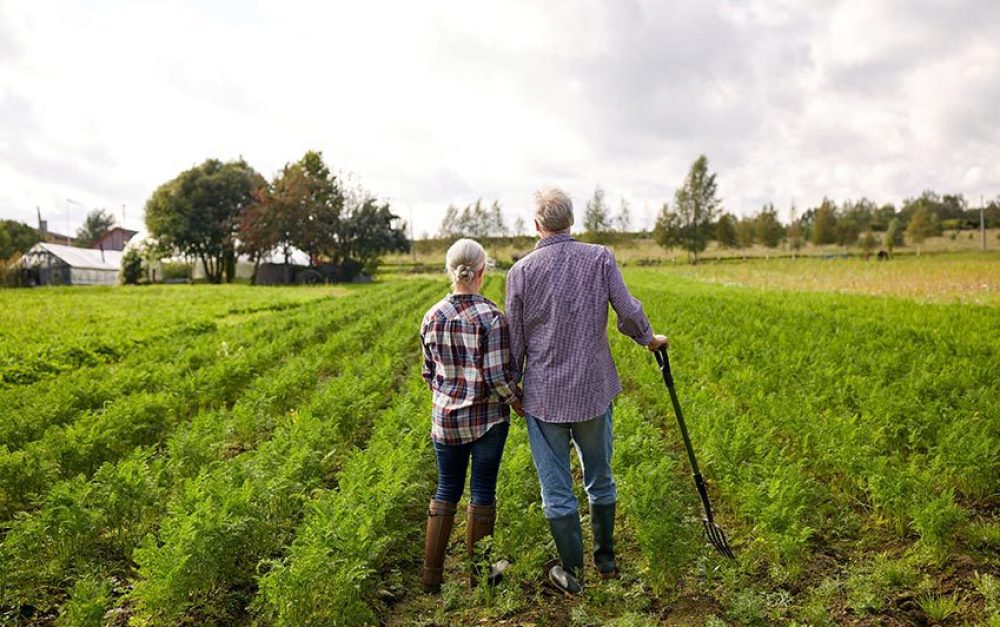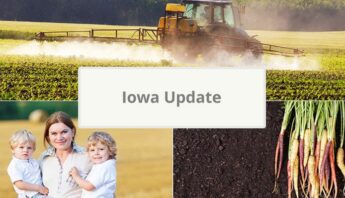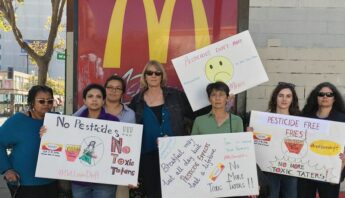Farmers vs. environmentalists. It’s a common narrative that rears its head again and again in news, opinion and analysis, most recently in this piece by Dan Charles for National Public Radio (NPR). The title reads, “Farmers Fight Environmental Regulations.” The imposed conflict is right there in the title.
Farmers vs. environmentalists. It’s a common narrative that rears its head again and again in news, opinion and analysis, most recently in this piece by Dan Charles for National Public Radio (NPR). The title reads, “Farmers Fight Environmental Regulations.” The imposed conflict is right there in the title.
As a small farmer from Iowa, I’m standing up alongside my fellow food-growers, livestock-raisers and land-tenders to challenge this narrative and say, no, not all farmers.
Who pollutes & who profits?
Farmers are stewards of the land. We are committed to the health and well-being of the soil and water because we depend on it for our livelihoods. So a “farmers vs. the environment” or “farmers vs. regulation” frame doesn’t pass this simple logic test.
What we really struggle with is remaining financially soluble in a system where food prices are kept artificially low — and those who profit the most in the food system are the agrichemical companies selling seeds and pesticides, and promoting the industrial growing practices that make using one impossible without the other.
Although this system has allowed some farmers to grow their businesses and stay on the farm, it’s driven up the use of chemicals, and has also contributed to the drastic decline in family farms since the farm crisis of the 1980s. Farm and ranch families now comprise just two percent of the U.S. population, and the average age of farmers is 58.3 years.
This particular article from NPR discusses water pollution, and the havoc that farmers are wreaking on streams and rivers across the country with fertilizer and manure runoff. I think most farmers would agree that erosion and runoff are major problems, and definitely don’t want to see the inputs they pay so much money for, or their fertile topsoil, washing away.
However, even with the best intentions it can be costly and time consuming to adopt new farming practices, especially if they require new or different equipment. And current policies provide little support for farmers to make these shifts.
Solutions that (could) work
Farming is a high risk business. Instead of being demonized for doing things that farmers feel they must in order to keep farming — such as farming lower quality land or removing their waterways to increase their acreage and yield — farmers need to be encouraged and incentivized to change these practices.
From the NPR article, it seems that there are two options for decreasing pollution in agriculture: strict regulation or cooperative, voluntary programs where the farmer is left shouldering the cost of experimental techniques. This is a false choice. There are several great examples of programs that utilize cost-sharing or incentives for adopting practices that are proven to be effective for implementing cover cropping and other conservation practices.
The Conservation Reserve Program (CRP) through the Farm Service Agency is one such program, through which farmers sign 10-15 year contracts to take highly erodible or otherwise vulnerable land out of production and employ conservation practices. The program helps farmers reduce soil erosion, improve water and air quality and increase wildlife habitat and populations.
Success stories are numerous across the country. Since its inception in 1985, CRP has helped prevent more than eight billion tons of soil from eroding, and protected more than 170,000 stream miles with riparian and grass buffers.
More voices & perspectives, please
So often in this false dichotomy of “farmers vs. environmentalists,” journalists will cherry-pick spokespeople that fit the story of conflict. They’ll hear from one representative from each “side” without looking at or speaking with other groups that may have different, more nuanced perspectives.
Many farm organizations across the country are working to improve farmers’ conservation practices. The Practical Farmers of Iowa (PFI), for example, is a farmer membership group with a mission to “strengthen farms and communities through farmer-led investigation and information sharing.”
One of PFI farmers’ priority areas right now is how to affordably and effectively utilize cover crops on our farms. They’ve launched a “don’t farm naked — use cover crops” campaign, and include practical learning opportunities about cover crops in all of their educational forums. As a PFI farmer cooperator, I’m running an on-farm research trial this year about the impact of grazing cover crops on my fall broccoli yields.
Similarly, Iowa Farmers’ Union (IFU) is a group of farmers that lobbies not against regulation, but for more sensible policies that helps farmers. At IFU’s lobby day this year, the topics we focused on were: restoring water quality, promoting family livestock farms, growing local food systems and protecting farms from pesticide drift.
Talk to farmers about farming policy!
One of the most important tactics for dismantling this harmful “farmers vs. environmentalists” narrative is conversation.
As stated above, farmers aren’t all in one camp and environmentalists aren’t all in the other. Here I am, a living, breathing farmer and environmentalist, and I’m a voice for farmers in my work here with PAN.
In states like Iowa, where farming is a major industry — your family, friends, neighbors are farmers — the least strategic side to take if you want a win for conservation is on the opposite side of farmers. Again, we are stewards of the land. We want to protect it.
We just need some support in doing so, and the first step is to engage in this ongoing dialogue.







